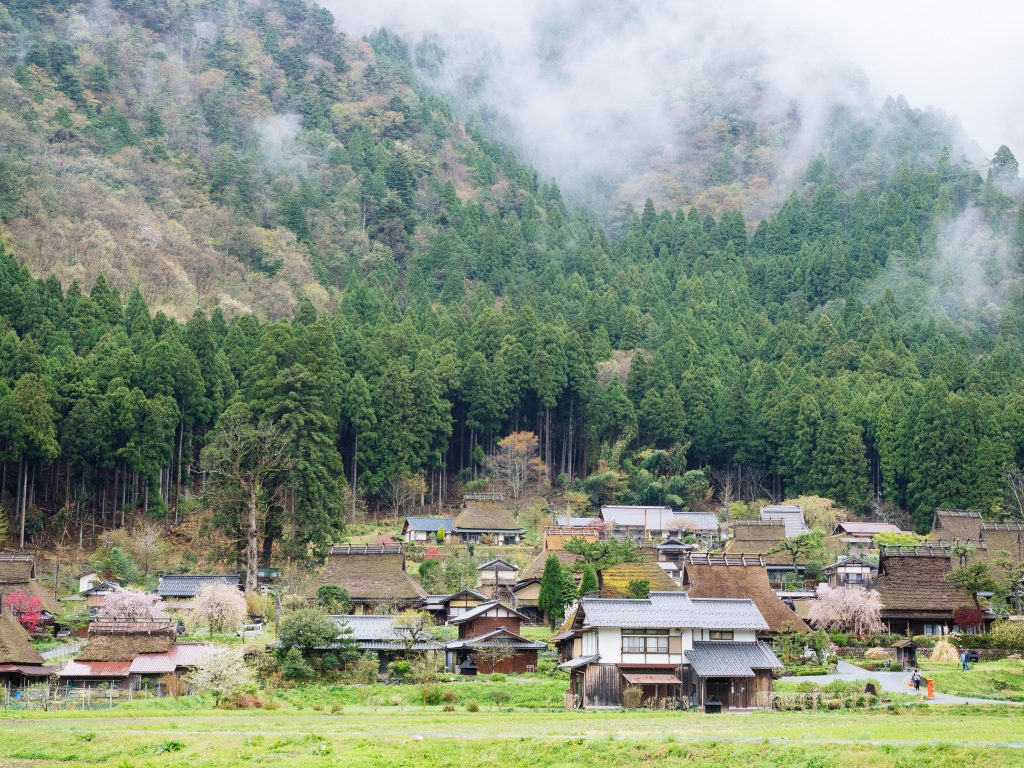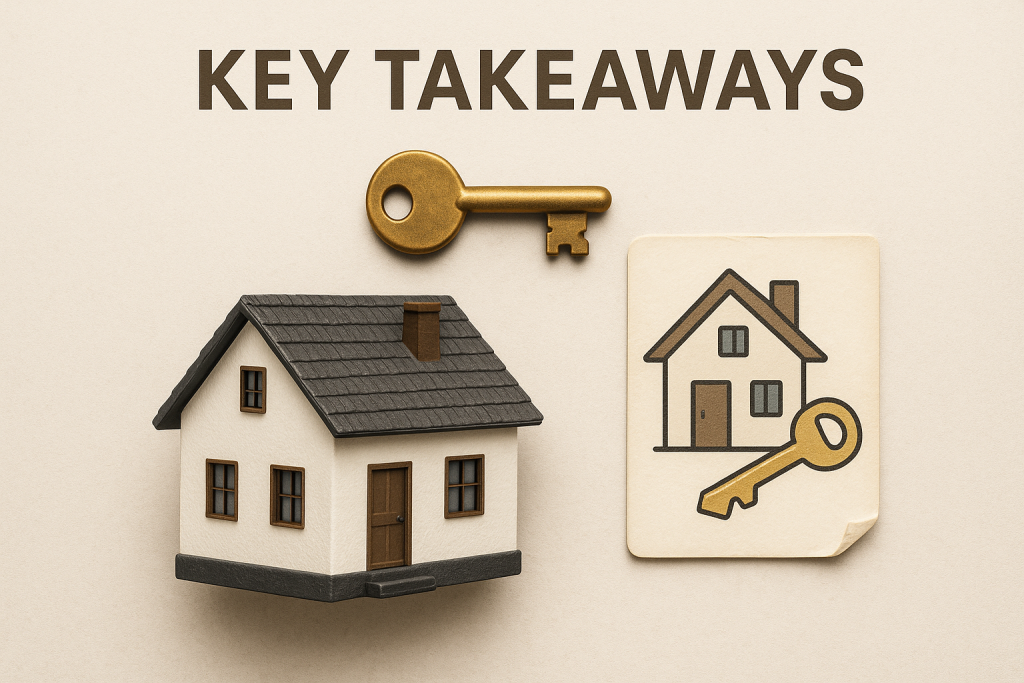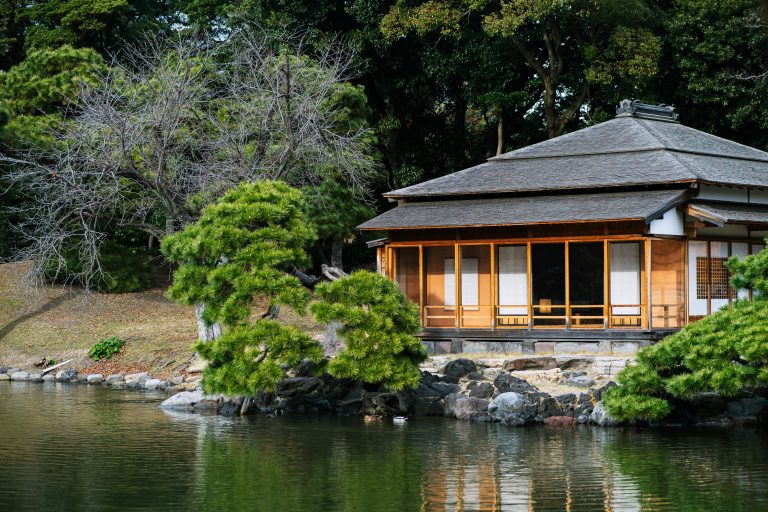Buying real estate in Japan can feel daunting—especially when you keep hearing two unfamiliar terms: freehold and leasehold. Put simply, freehold (shoyūken / 所有権) gives you complete, permanent ownership of both land and building, while leasehold (shakuchiken / 借地権) lets you own the building but rent the land beneath it for a fixed term.
This guide breaks down the key differences, costs, taxes, and long-term implications so you can pick the option that fits your investment goals.
Freehold vs Leasehold: Key Differences at a Glance
| Aspect | Freehold (所有権) | Leasehold (借地権) |
| Land Ownership | ✔ Yes—land and structure | ✖ No—land is leased |
| Duration | Unlimited (perpetual) | Fixed term, typically 30–50 yrs; renewal usually possible |
| Up-Front Cost | Higher purchase price & taxes | 25–50 % lower entry cost |
| Ongoing Costs | Annual property & city-planning taxes | Annual/ monthly ground rent; no land tax |
| Control & Flexibility | Full control—renovate, sell, rebuild without landlord consent (within zoning laws) | Major changes or sale often need landowner approval |
| Financing | Widely accepted by Japanese banks; easier to mortgage | Fewer lenders; stricter terms |
| Resale Value | Generally appreciates with land market | Depreciates as lease term shortens |

Freehold Ownership in Japan (所有権): Full Land + Property Rights
Pros of Freehold Ownership
- Complete Control: Renovate, lease, or sell whenever you like—no landlord permission required.
- Long-Term Security: Ownership never expires, making estate planning simpler.
- Higher Resale Potential: Land value often increases over time, boosting equity.
- Easier Financing: Japanese banks prefer freehold collateral, offering wider mortgage options.
Cons of Freehold Ownership
- Higher Initial Outlay: Expect steeper purchase prices and closing costs.
- Annual Taxes: You pay fixed-asset tax and city-planning tax on land and building.
- Maintenance Responsibility: All structural repairs, insurance, and compliance costs are yours.
Leasehold Ownership in Japan (借地権): Long-Term Land Lease
Pros of Leasehold Ownership
- Lower Entry Cost: Purchase price can be 30–50 % less than an equivalent freehold.
- Tax Relief: No land tax—only the building incurs fixed-asset tax.
- Higher Rental Yields: Lower capital outlay can translate into better ROI percentages.
- Negotiable Terms: Lease duration, rent escalations, and renewal clauses are contract-based.
- Exit Flexibility for Heirs: Some leases allow heirs to return the property to the landowner or the national treasury.
Cons of Leasehold Ownership
- Ground Rent: Ongoing payments to the landowner affect long-term affordability.
- Limited Autonomy: Remodeling, sub-letting, or selling usually requires landlord consent.
- Financing Hurdles: Fewer banks offer loans; interest rates or down-payment requirements may be higher.
- Resale Challenges: Buyers (and lenders) may hesitate when lease terms dwindle below ~20 years.
Freehold or Leasehold: Which One Fits Your Strategy?
Choose freehold if you:
- Want maximum control and indefinite ownership
- Plan to hold or pass property to heirs long term
- Prefer easier financing and stronger resale value
Consider leasehold if you:
- Need a lower cash outlay to enter prime locations
- Aim for higher rental-yield percentages in the short-to-medium term
- Are comfortable navigating renewal negotiations and lender restrictions
Either way, work with a bilingual real-estate professional who understands Japanese property law and can flag contract fine print before you sign.
Frequently Asked Questions (FAQ)
1. Can foreigners own freehold property in Japan?
Yes. Japan places no restrictions on foreign nationals owning land or buildings. As a foreign buyer, you enjoy the same freehold rights as Japanese citizens.
2. How long does a leasehold last in Japan, and can I renew it?
Standard terms run 30–50 years. Renewals are usually granted, but conditions (additional fees, updated ground rent) are set in your lease contract—review them carefully.
3. Do I pay property tax on a leasehold?
You pay fixed-asset tax on the building only. The landowner pays land tax; you pay ground rent instead.
4. Is it hard to get a mortgage for leasehold property?
It can be. Many banks prefer freehold collateral. Some will lend on leasehold if the remaining term exceeds the loan period or if the lease includes guaranteed renewal.
5. Which option is better for long-term investment?
For decades-long holds, freehold generally delivers stronger capital growth and simpler financing. Leasehold suits investors seeking lower entry prices and higher percentage yields—but only if you manage lease-renewal risk.

Key Takeaways
- Freehold = higher up-front cost, perpetual ownership, better financing.
- Leasehold = lower purchase price, ongoing ground rent, term-limited control.
- Foreign buyers face no ownership restrictions in Japan for either option.
- Always scrutinize lease clauses and consult professionals before committing funds.
Ready to dive deeper into Japan’s property market?
Check out our articles on 2024 Real Estate Laws and 2025 Renovation Laws for legal requirements, timelines, and pro tips on securing financing.

